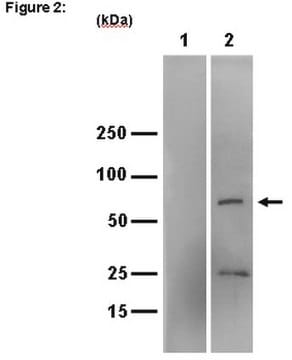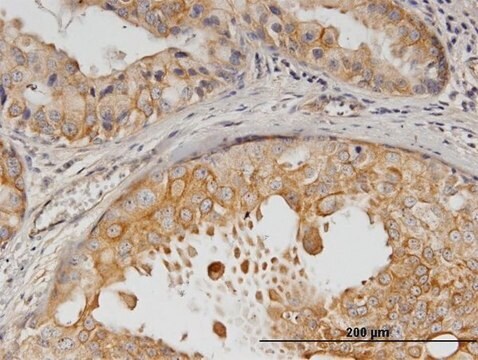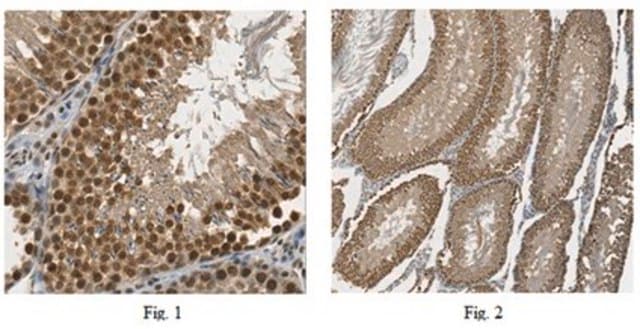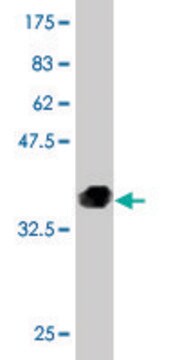OP15
Anti-c-ErbB2/c-Neu (Ab-3) Mouse mAb (3B5)
liquid, clone 3B5, Calbiochem®
Synonym(s):
Anti-HER2, Anti-c-Neu, Anti-ErbB2, Anti-Erythroblastosis Virus
About This Item
Recommended Products
biological source
mouse
Quality Level
antibody form
purified antibody
antibody product type
primary antibodies
clone
3B5, monoclonal
form
liquid
contains
≤0.1% sodium azide as preservative
species reactivity
human, mouse
manufacturer/tradename
Calbiochem®
storage condition
do not freeze
isotype
IgG1
shipped in
wet ice
storage temp.
2-8°C
target post-translational modification
unmodified
Gene Information
human ... ERBB2(2064)
General description
Immunogen
Application

Frozen Sections (2.5 g/ml)
Immunoblotting (2-3 g/ml, see application references)
Immunofluorescence (2.5 g/ml)
Immunoprecipitation (1 g/sample, see application references)
Paraffin Sections (2.5 g/ml, pressure cooker, heat or trypsin pre-treatment required, see application references)
Packaging
Warning
Physical form
Analysis Note
HepG2 cells or normal skin
SK-BR-3 cells or breast carcinoma tissue
Other Notes
Tetu, B., et al. 1994. Cancer73, 2359.
DiFiore, P.P., et al. 1987. Science237, 178.
Slamon, D.J., et al. 1987. Science235, 177.
Varley, J.M., et al. 1987. Oncogene1, 423.
Bargmann, C.I., et al. 1986. Nature319, 226.
Yamamoto, T., et al. 1986. Nature319, 230.
Blick, M., et al. 1984. Blood64, 1234.
Schwab, M., et al. 1984. Cold Spring Harbor Laboratory 2, 215.
Legal Information
Not finding the right product?
Try our Product Selector Tool.
Storage Class Code
10 - Combustible liquids
WGK
nwg
Flash Point(F)
Not applicable
Flash Point(C)
Not applicable
Certificates of Analysis (COA)
Search for Certificates of Analysis (COA) by entering the products Lot/Batch Number. Lot and Batch Numbers can be found on a product’s label following the words ‘Lot’ or ‘Batch’.
Already Own This Product?
Find documentation for the products that you have recently purchased in the Document Library.
Our team of scientists has experience in all areas of research including Life Science, Material Science, Chemical Synthesis, Chromatography, Analytical and many others.
Contact Technical Service








